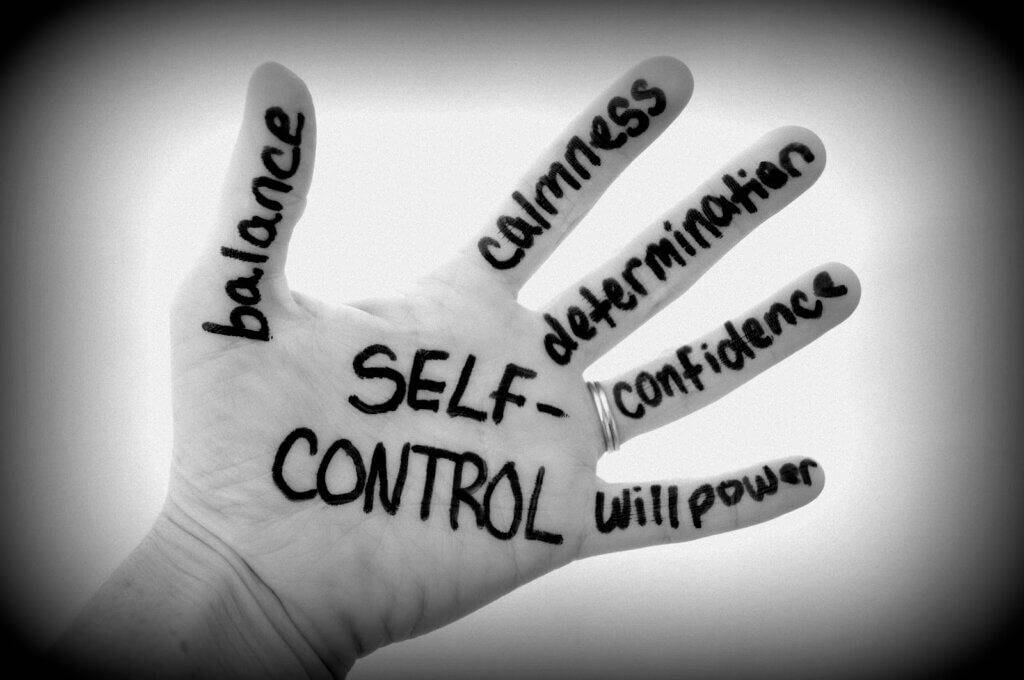Do Narcissists Lack Self-Control? (To What Extent They Can Go In Anger?)
Do Narcissists Lack Self-Control? Narcissists may lack self-control due to a mix of personality traits and upbringing. This article may lead you to the answer to this question, and also provide a few insights regarding narcissists and their lack of self-control. Do narcissists act impulsively after losing self-control, let us know further!
Narcissists have a grandiose sense of self-importance and believe they are entitled to special treatment, which can lead to impulsive and reckless behavior. They may also lack empathy and have a tendency to manipulate others to get what they want. Additionally, their upbringing may have played a role, such as the overindulgence of their parents and the harsh consequences of their child’s actions. These can lead to a lack of self-discipline and an inability to regulate their behavior.
A narcissistic personality is characterized by an immoderate sense of self-importance, a constant need for admiration from others, and a lack of empathy for others. This personality trait can lead to poor self-control and impulsivity, as narcissists are often driven by their immediate desires and gratifications without considering the consequences of their actions.
The topic of narcissism has been studied for many years, with a focus on the characteristics and behaviors associated with this personality disorder. One common trait attributed to narcissists is a lack of self-control, which can manifest in a variety of ways, including impulsive behavior, emotional outbursts, and difficulty regulating emotions. However, the extent to which narcissists lack self-control and can go in anger is a complex and multifaceted issue that requires a deeper understanding.

What is self-control?
Self-control is the potentiality of one’s self to regulate sudden urges, behavior, and emotions to achieve the desired desirable outcome. Self-control is an essential tool to achieve long-term goals or futuristic achievements. Self-control means working toward a desired goal without getting distracted by impulsive, unhealthy, or useless factors with willpower. Self-control comes with extra strong willpower that helps you in achieving the required planned outcomes, aims, and desired conduct.
Self-control helps you to maintain or regulate your actions in situations where there are temptations and distractions. It involves delaying gratification, managing impulses, and making reasonable decisions, especially when faced with difficult or challenging situations and circumstances. Self-control is an important attribute of personal and professional life as it helps individuals to be disciplined, focused, and successful in achieving their goals.
For instance, self-control means ignoring sudden or impulsive urges to spend money on some not so required things which might be useless in a while or might not be required at the moment because you are saving up for something useful, absolutely worthy, and required for a future goal or endeavor.
When it comes to narcissism, narcissists tend to lack self-control as they easily get distracted by criticism, or when someone overpowers them, when someone overshadows their presence in certain situations, or when they are unable to control any situation as to their wish they may lose self-control in the form of imbalanced negative emotions, overflow of rage or hurting others around them while resorting to physical violence.
Defining Narcissism
Characterized by a grandiose sense of self-importance, a need for admiration, and a lack of empathy, narcissism is a personality disorder that affects approximately 1% of the population. Narcissists are often difficult to deal with because they have an inflated sense of self-worth that permeates every aspect of their lives. They may feel entitled, arrogant, and self-centered, and their behavior can be highly unpredictable, causing chaos and dysfunction in personal and professional relationships.
Do Narcissists Lack Self-Control?
One of the key attributes of narcissism is a lack of self-control. This manifest in a variety of ways, including impulsive behavior, emotional outbursts, and difficulty regulating their emotions. Narcissists are highly reactive and can become pretty aggressive or upset when they don’t get what they want. This can lead to explosive outbursts and erratic behavior, which can be damaging to themselves and others.
While it is proven to be true that narcissists lack self-control, the degree to which this is true varies depending on the individual. Some narcissists may be able to control their emotions more than others, while some of them might entirely be lacking self-control. But it also becomes predominantly obvious that narcissists can be highly manipulative, and may manipulate without even blinking to get control to reach their desired outcomes.

Do Narcissists Lack Self-Control? – Conclusions based on study and research
According to a review of Theory and Research; “The Role of Narcissism in Self-Regulation and Decision Making”; provided by W. Keith Campbell, the author suggests an overview of theory and research on the relationship between narcissism, self-regulation, and decision making, highlighting the importance of self-control in mitigating negative outcomes associated with narcissistic traits.
A study conducted by Duckworth et al. studied the links between individual differences in narcissism, low self-control, and violent behavior among a nationally representative sample of high school students. The results of their study suggested that higher levels of narcissism were associated with greater levels of violent behavior and that this effect was independent of low self-control. Additionally, the study found that low self-control was also associated with greater violence, indicating that multiple factors may contribute to violent behavior.
A study presented by Sophie L. and Brad J. Bushman, titled; “Narcissism and Aggressive Behavior: A Meta-Analytic Review” conducted a meta-analysis of the literature on the relationship between narcissism and aggression. The study found that individuals with high levels of narcissism were more prone to display aggressive behavior towards others, either directly or indirectly, such as through verbal or physical violence.
Also, a study published in the Journal of Personality and Social Psychology, explains the association between narcissism and aggression. According to the study, individuals with high levels of narcissism tend to lash out aggressively when they perceive a threat to their self-esteem or ego. These individuals can become aggressive towards others as a way to maintain their self-image and protect themselves from feelings of vulnerability or inadequacy.
Overall, these studies indicate that narcissism and lower self-control are important factors to consider when studying violent behavior. However, it is important to remember that there are many other factors that can contribute to violent behavior, and a complex interplay of factors is likely involved.
How do narcissists react when they know they are losing control?
Narcissism is a personality disorder that affects probably a significant number of people. Narcissists rely on their narcissistic supply to function appropriately for their day-to-day tasks. Narcissists often display a range of troubling behaviors which are totally moral for them but can be troublesome for others.
These troubling behavioral gambits include a sense of entitlement, a lack of empathy, and an inability to accept criticism. narcissists build a fake facade of confidence, power, and self-assurance on the surface, but beneath that fake surface lies the true self of that individual which is manipulative, seeks constant admiration, controls almost everything, feels insecure all the time, and is vulnerable to many life situations and circumstances.
When a narcissist finds themselves losing in any situation and especially control or face a potential threat to their ego, their inflated self-image, and their believability, they react in a few ways or manner. So let us explore some of the typical reactions of a narcissist when they feel their power or control is slipping away.

Denial and Dismissal – One of the most habitual reactions of a narcissist is denial and dismissal. When presented with evidence that contradicts or raises questions regarding their inflated sense of self, they may deny to acknowledge it or just downplay its significance.
Blame Shifting – Blame shifting is also one of the most commonly used tactics by a narcissist. When something does not go according to a narcissist’s wish or plan, or when something goes wrong or a mistake is made, a narcissist would definitely deflect responsibility and place the blame on someone else.
Depression – The narcissist may become sad, depressed, or unhappy when they realize they are losing. This may lead to feelings like hopelessness, despair, anguish, and melancholy.
Aggression and Anger – Narcissists may react aggressively over losing control or power. Rage is the narcissist’s first and only reaction to all kinds of mishaps. When they perceive a threat to their ego, they may lash out at those they feel are responsible. This can take various forms like verbal abuse or even physical violence.
Withdrawal and Isolation – Narcissists may react to losing either by withdrawing or isolating themselves. They may break the relationship with their partner or disengage from relationships, stop socializing, or become self-destructive. This withdrawal or isolation may stem from a fear of vulnerability or loss of control.
Extreme Measures – In some cases, a narcissist may choose to resort to extreme measures when they are faced with the loss of control or power. Such extreme measures can include unethical or illegal behavior such as cheating, lying, stealing, breaking the law, hurting people physically, or doing something felonious. Narcissists can do anything to maintain their sense of control and superiority even if it includes sacrificing their ethics or morals.
Signs that you may be lacking self-control?
- You feel the constant need to control everyone and everything around you.
- You get impulsive and perform some actions that are irreversible.
- Your long-term goals are not achieved as you easily get distracted by some small and unworthy short-term decisions that you make.
- You distort reality to have your own ways and build a fantasy world for everyone including you where you are the king/queen.
- People often walk on eggshells around you as they fear your presence.
- You resort to domestic violence, rage outbursts, and giving mental and physical pain when you lose hold of the situation.
- You manipulate and disregard everyone else and your presence becomes overbearing for people around you.
- Your presence is feared, and you constantly disrespect your partner in the relationship.
- You hurt everyone physically, mentally, and emotionally.

To what extent they can go into Anger when Narcissists realize they are losing Control?
When a narcissist seems to have lost control or is on the verge of losing control, their most expected reaction is their rage. Aspects of Narcissistic rage are displayed when the individual’s ego is challenged or threatened. Narcissistic rage is a powerful emotion that can be triggered by seemingly non-injurious events like the slightest criticism, pointing out mistakes, or any perceived insults. When any such unpleasant moment occurs for a narcissist, lashing out in anger, verbal exploitation or physical abuse is not very uncommon.
The extent to which a narcissist can go in anger is totally and largely dependent on the individual. Some may express their rage verbally, yelling, and screaming at those around them. Some individuals may choose physical violence or take some actions which may be irreversible like breaking things, puking out slang, or hurting someone that might not end well. Especially it is observed that overt narcissism might result in physical and verbal damage more than covert narcissism. Covert narcissism usually resorts to silent treatment in the case when they are furious.
Regardless of the narcissism and the rage that may take any form, narcissistic rage is always proven to be destructive that can leave those around them, either on the receiving end or just a part of it may be left feeling intimidated, frightened, and emotionally scarred.
Is it possible to treat Narcissism or the out-of-control rage that comes with losing control?
There is no such specific cure for curing narcissism though, but a variety of treatment options might help in healing and getting past the traumatic experiences of life which can be the core reason for the prevailing narcissism in someone’s behavior. The treatments include therapy, medication, and support groups, all of which that may help in making a narcissist’s life a little easy and also everyone around them.
In Conclusion
The extent to which a narcissist may lack self-control and can go in anger is a complex issue that varies depending on the individual. While some narcissists may have more control over their emotions than others, all narcissists are prone to impulsive behavior, emotional outburst, and difficulty regulating emotions. Treatment options like going to therapies, taking medications, and help from family, friends, or even support groups can help narcissists learn to manage these symptoms and develop an insight into their traumatic and manipulative behavior.
- What to expect when the Narcissist knows you know? – 11 Potential Reactions - November 6, 2025
- How does a Narcissist respond to No Contact?: 10 Plausible reactions - November 6, 2025
- The Inverted Narcissist: Traits that Describe Them - November 6, 2025


